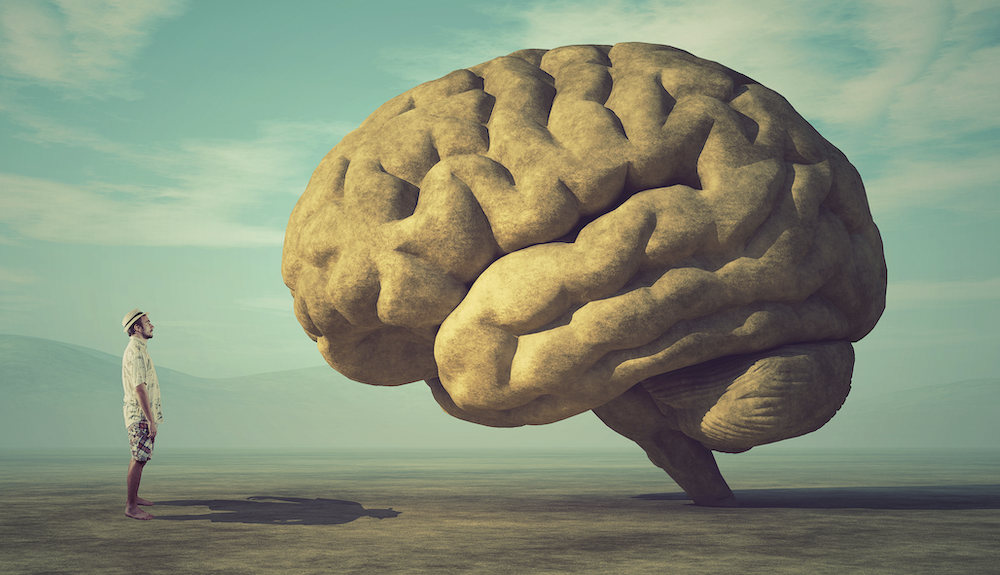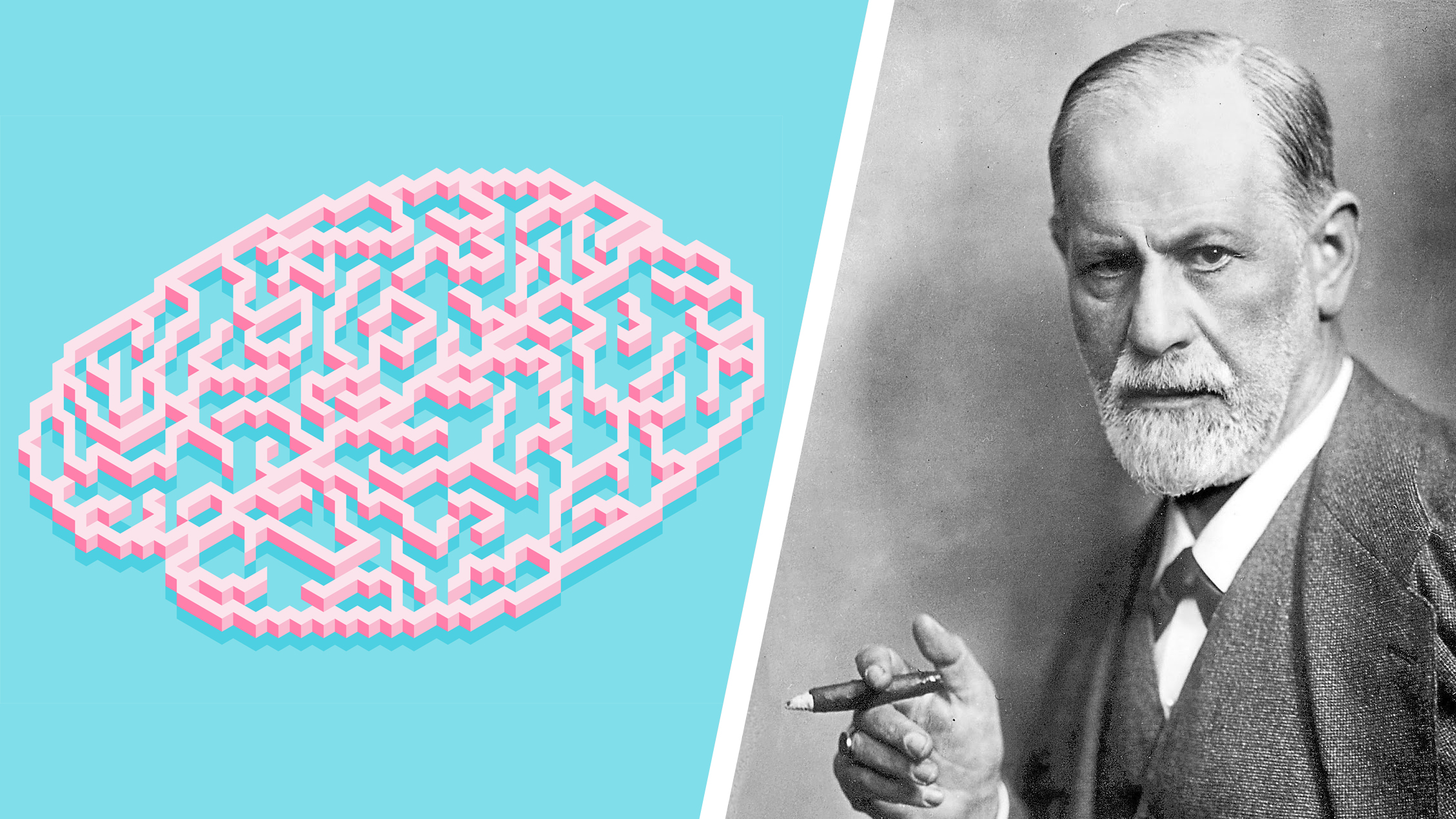6 fascinating solutions to the ever-baffling “mind-body problem”

- One of the toughest and most discussed problems in philosophy concerns how the mind and body interact.
- The mind-body problem has been a staple of modern philosophy since Descartes.
- Although the problem has yet to be solved, we currently have a better idea of how difficult it is.
One of the enduring problems in philosophy is determining how the world works from our subjective point of view. The “mind-body problem” — how mind and body interact and what they are composed of — takes us to the heart of the matter.
While many resolutions have been suggested, some are less satisfactory than others. It is a difficult problem — how can mind and body appear simultaneously different and connected? Morrissey expressed our bafflement thus: “Does the body rule the mind? Or does the mind rule the body? I dunno.”
Here, we outsource the problem to a roster of noted philosophers and explore how each of them took up the challenge where others left off.
René Descartes
A French philosopher and mathematician working during the 17th Century, Descartes is acknowledged as the father of modern philosophy. He is most famous for his work Meditations on First Philosophy.
In it, he sets out to discover what he can know for certain. His campaign of radical doubt famously leaves him with the knowledge that something is doing the doubting. This leads to the famous conclusion, “I think, therefore, I am.”
In his later works, he more definitely separates our minds from the world around us, treating mind and body as two separate substances which exist in fundamentally different ways and do different things. This idea is known as Cartesian Dualism. Dualism generally holds that physics does not explain at least some truths about consciousness because something non-physical is involved.
To address the problem of how mind and body interact, Descartes posited that the pineal gland, a small part of the brain that makes melatonin, was the “seat of the soul” and allowed the two substances to engage. If this is the case, then “You” are a mind — the thing that thinks — with a body you interact with through a small part of the brain.
Of course, Descartes wasn’t the first person to consider the mind-body problem. The Buddha argued that the mind and body were separate but interdependent things in 500 BCE. Plato treated the soul as separate from the body it was trapped in. Aristotle argued that the mind was a function of the body. However, Descartes’ approach to the issue did reignite debate on the topic.
Nicolas Malebranche
A philosopher and Catholic priest, Malebranche (1638-1715) advanced Descartes’ work and tried to solve the mind-body problem from a distinctly Christian point of view.
He agreed with Descartes that mind and body were two separate substances and couldn’t interact freely because of their fundamental differences. However, he rejected the pineal gland argument.
His solution was that God, as a transcendent being, could interact with both. This means that when you try to do something, like tell your leg to move forward, it doesn’t directly affect the body but rather provides God a chance to move your leg for you. God often obliges. This stance is known as “occasionalism,” as the will provides an “occasion” for God to step in. Malebranche goes further than others holding this position, arguing that God is the only cause of any changes we see in the world.
The implications of this view are fairly clear — your mind can’t make your body do anything that God doesn’t approve of. “You” are still a mind, but rather than interacting with the body, you’re merely willing and watching as something else steps in to cause your will to become action.
While this view has never been extremely popular, it isn’t the strangest or most divinely focused idea on this list. Our next thinker leaned further into the idea that God was always involved in our interactions.
George Berkeley
Like Malebranche, Berkeley — the Bishop of Cloyne — was a philosophical member of the clergy. He worked in 18th-century Britain, Ireland, and Rhode Island.
The Bishop introduced a theory now known as Subjective Idealism. This solves the problem of how the mind interacts with the world by arguing that materials don’t really exist. After all, you can’t have a mind-body problem if minds are all that exist. There is only the mind and the ideas the world is made of. He famously held that “to be is to be perceived.” That’s where the “subjective” part comes in: Individual perception is key here.
If this is true, your body does not exist in a material fashion. This doesn’t mean that everyday objects aren’t real, just that they are a combination of sensory ideas. These exist because they are being perceived. The reason things you aren’t looking at continue to exist is because God keeps an eye on everything.
As you might imagine, the idea that everything is an idea has been controversial. When Dr. Samuel Johnson was told of Subjective Idealism, he famously kicked a stone, saying, “I refute it thus.” But, of course, that doesn’t prove the stone isn’t made of ideas — just that you can kick it.
Our next thinker would bring back the idea of material substance. However, his ideas were so radical that he was excommunicated over them.
Baruch Spinoza
Baruch Spinoza (also known as Benedictus de Spinoza) was a Portuguese-Jewish philosopher working in the Netherlands during the 17th Century. Excommunicated from the Jewish faith for his radical beliefs, he is remembered principally for his book Ethics, which provides a straightforward solution to many metaphysical and ethical problems.
He argues that there is only one substance, which is both matter and mind. This removes the problem of how they would interact and introduces the idea that everything — including the device you are reading this on — has some element of mind in it. He goes further, however, and posits that this substance is either embedded with the divine or is God. This God is not the traditional old man outside of time that Abrahamic faiths look to, but one Spinoza identifies with nature or the physical laws of the cosmos.
The implications of Spinoza’s philosophy have been widely discussed. If he’s correct, you have no free will since everything that happens flows along predetermined lines in accordance with the desires of God and physical law. Every aspect of your person shares a divine essence with everything else. He suggests that coming to terms with how the universe works is the path to an ethical and well-lived life.
Spinoza inspired many later philosophers, but his ideas were never popular. However, his proposition that everything has an element of the divine, known as Pantheism, has always enjoyed some support. Albert Einstein claimed to believe in “No God but Spinoza’s.”
Of course, our understanding of the world has progressed over the last few centuries, giving our last two thinkers a chance to ponder the mind-body problem in the context of modern science.
Thomas Nagel
Professor of Philosophy and Law Emeritus at New York University, Nagel earned his doctorate at Harvard under the supervision of John Rawls. Popular audiences know him for his essay on the philosophy of mind, “What is it Like to Be a Bat?”
If you’ve already come to the conclusion that the mind-body problem is rather difficult, you’re not alone. Dr. Nagel has argued it is so complex that a full understanding of consciousness through physics is, as yet, impossible.
In his paper, he says that the subjective nature of consciousness means objective or reductionist methods may continue to come up short of giving a satisfactory explanation. He uses the example of trying to understand the use of echolocation by a bat to illustrate this — without having the full mindset and experiences of a bat, we can’t really understand “what it is to be” a bat.
Importantly, Nagel notes that we might eventually make a scientific discovery that addresses this issue. He simply holds that we don’t have one right now. Philosopher Colin McGinn takes the idea further. He maintains that neither science nor philosophy will ever really figure out consciousness.
If Nagel is correct, we can conclude that minds are complex and that we won’t solve this problem anytime soon. Our last thinker accepts these problems and uses Nagel’s terminology to address them.
David Chalmers
David Chalmers is an Australian philosopher teaching at New York University. His greatest contribution to the philosophy of mind was formulating the “hard problem of consciousness.” The problem asks how and why we can have “qualia,” defined as “individual instances of subjective, conscious experience.”
One possible solution he discusses is panprotopsychism. In this philosophy, fundamental aspects of physical nature have the traits which lay the foundations for consciousness. These foundations are the constituent parts of consciousness that fully arise in certain, more limited cases. Contrast it to panpsychism which says some of the building blocks of nature are conscious or have a mind.
If this is correct, then you have a mind because the various parts of you are made of things with the potential for consciousness. The ability to experience qualia comes from something attached to the material that makes up your body, even if that ability is poorly understood. It also means that a thermostat could be conscious if it is complex enough.
His proposal doesn’t stand alone. It is considered a descendant of Bertrand Russell’s Neutral Monism, which holds that there is a single substance that makes up the universe that has the traits needed to support both physical and mental events. It is also tied to the tendency in recent philosophy to ground the mind in physical matter. However, Chalmers has described his stance as being neither materialist nor dualist while still being subject to understanding through natural laws.
Just because Descartes’s idea of a “ghost in the machine” has been left behind by most modern thinkers doesn’t mean we aren’t trying to answer the same questions he raised at the dawn of modern philosophy. We just have a better understanding of exactly how difficult the mind-body problem is.





